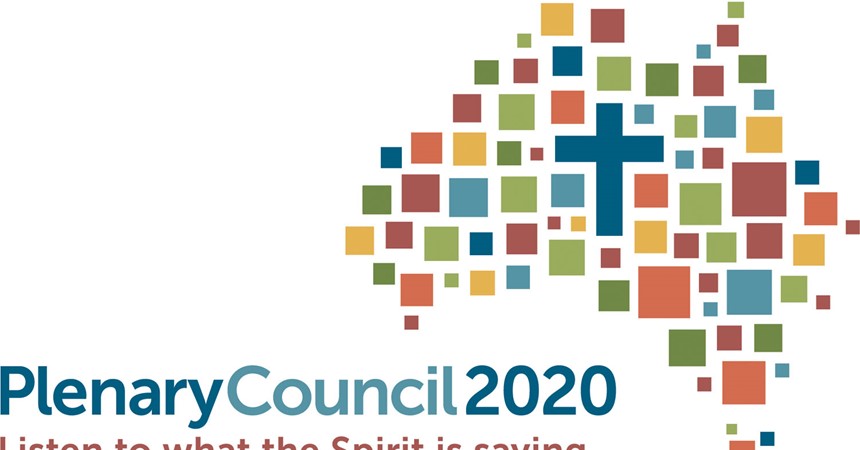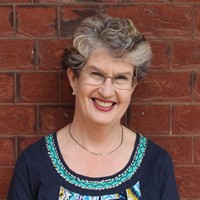It’s hard to imagine the Australian bishops acting similarly, but if they did take to the streets, or the airwaves, they might be chanting:
What does God want? What do you think? When does God want it? When you’ve taken time to listen and pray about it!
The question at the top of the page is the focus of preparation for the Plenary Council of 2020, given the green light by Pope Francis in March after the Australian bishops announced plans for such a gathering under the presidency of Archbishop Timothy Costelloe SDB.
The synodal approach is far from new in the church, although one could be forgiven for feeling that it does not take centre stage as often as it might.
In fact Bishop Bill opined on the synodal church in Aurora back in August 2017:
“Some readers will be aware of Pope Francis’ ongoing remarks on the desirability of ‘synodality’ in the church or, indeed, of a ‘synodal’ church….quite strong memories persist of the diocesan synod held in 1992-93. Others will be familiar with Synods of Bishops on particular topics that have been held in Rome periodically since the Second Vatican Council….‘Synod’ is simply derived from the Greek word for ‘a meeting’. So, although the rules and procedures of…the Synod of Bishops might be very precisely defined, to talk about the church being more ‘synodal’ simply means that its decision-making processes should be based around consultation, coming together to talk things through, and confidence in the collective wisdom that arises from the Holy Spirit’s presence in a group of believers.
“The first great church issue was whether pagans had to be circumcised to be baptised. The question was whether Christianity was a movement within Judaism or a new faith that was equally open to gentiles. The good folks in Antioch decided to send a delegation (“Paul and Barnabas and others of the church”) to Jerusalem to discuss the matter with the apostles and elders. “After the discussion had gone on for a long time”, Peter swayed the discussion with a speech, James proposed a resolution, the apostles and elders decided to send out a ruling, “and the whole church concurred. “It has been decided by the Holy Spirit and by ourselves”, the apostles and elders in Jerusalem wrote to the “brothers in Antioch, Syria and Cilicia”. ‘Synodality’ was born.
“Now we have synods to the right and synods to the left! ….a gathering of the bishops and the modern equivalents of ‘the elders of the church’ in Australia is in the offing. This will require massive consultations with the Catholic people at all levels. So we are now initiating the broad consultations that will help set the agenda for a diocesan synod, for the good of the mission and the people of our diocese, but also to enable us to take our discernment of the signs of the times into the National Plenary Council. These next few years promise to be full of consequence. I hope that very many of you will share in the talking and the praying, that we might get to the point of saying as a Catholic community, ‘It has been decided by the Holy Spirit and by us that….’”
Now, the national Plenary Council Facilitation Team is inviting you – individually or as a member of a family, a parish, a religious congregation, or a group of friends or colleagues ‒ to “Listen to what the Spirit is saying.” In fact, 2018 has been designated as a Year of Listening.
There’s something in me that feels that the People of God spend a lot of time listening – to the Word of God; to the breaking open of the Word in the homily or in a reflection by a member of the community; to Pope Francis, directly or indirectly. I’m sure I’m not the only one who wants to talk!
However, there’s a lot of wisdom in the Executive Committee so perhaps we are being called to trust those people’s judgement that some more listening won’t hurt?
2019 has been designated a Year of Discerning, and 2020 a Year of Proposing. The Plenary Council is not a ‘one off’ event but will be held in two sessions; the first in October 2020 and the second in mid-2021.
There will be two sessions in order to enable deeper discernment, further learning, dialogue and listening where it may be needed and to write or rewrite in response to the dialogue of the first session.
Most importantly, the time in between will allow us to ensure we are listening “to what the spirit is saying” (Rev 2:7).
President of the Australian Catholic Bishops Conference, Archbishop Mark Coleridge, has said, “The plenary council isn’t a talkfest; it’s a time to discern, decide and act. If we do that under the influence of the Holy Spirit, things will change in unexpected and hope-filled ways.”
Leader of the Facilitation Team, Lana Turvey-Collins, is keen that all those with an interest in the future of the Catholic Church of Australia be encouraged to “speak freely from their hearts.
“Pope Francis told bishops and cardinal during the Vatican's Synod on the Family that they should speak boldly. ‘Let no one say, ‘this cannot be said’. That’s a good rule of thumb for the Plenary Council – if it arises from prayerful listening and reflection, put it out there!”
The Plenary Council logo reflects a “community of communities”, drawing upon the message from Pope Francis about the nature of Church. He wrote in Evangelii Gaudium,
“It is a community of communities, a sanctuary where the thirsty come to drink in the midst of their journey, and a centre of constant missionary outreach.” (EG28)
The colours are inspired by the colours of our sunburnt country – ochre of the red centre, green from the gum tree leaves, deep blue of the ocean that surrounds us and that characterises our nation’s flag. They are tones and textures that reflect our beautifully unique Australian identity.
How do I get involved?
- Pray for the Holy Spirit to guide the Church through the process, discernment and decisions of the Plenary Council for the life and mission of the Australian Church.
- Begin conversations with your friends and neighbours about what it means to live the life and mission of Jesus in contemporary Australian society. What do you think God is asking of us in Australia?
- Reflect on the Gospel as well as the emerging social issues of our time and how these are reflected in, and impact upon, the practice of our faith.
- Engage with others in your parish, school or network on how you might create practical opportunities to listen and dialogue with others about the future of the Church, particularly between August and October 2018.
- Create a group in your community to promote the Plenary Council and the conversations that will be encouraged.
- Visit the website and learn more about the Plenary Council. Share and play the videos in the “Resources” section in your local parish, school and communities to spread the word about this once-in-a-century opportunity.
- Keep listening!
An Aurora invitation
While there will no doubt be invitations from parishes, groups within the diocesan community and for some, workplaces, those invitations may only reach those already engaged with the church. The Plenary Council Facilitation Team very much hopes that participation will be as broad as possible. No one is excluded! I hope to include in upcoming editions responses to the critical question,
What do you think God is asking of us in Australia at this time?
Succinctness will be appreciated but I hesitate to impose a word limit. If editing for length is needed, it will happen! It would be great to receive a variety of responses so they can be shared with readers and encourage further responses. Please write to Aurora Editor, PO Box 576 or email – as soon as you can manage!




























































































